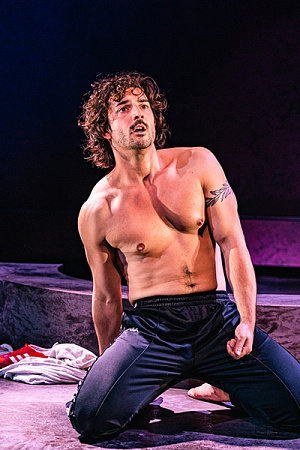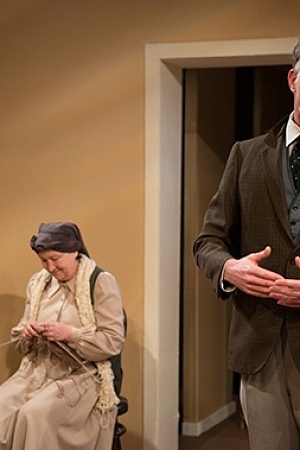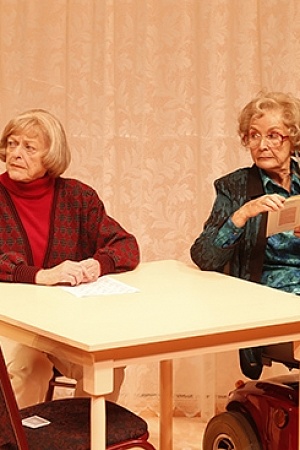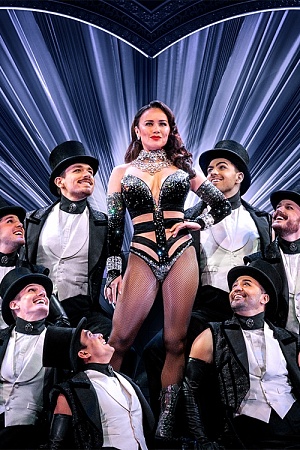Samuel Beckett and James Joyce in Adelaide
One might be pardoned for assuming, from the preponderance of mono-dramas at this year’s Adelaide Festival, that some mix of budgetary pressures and theatrical taste has meant that drama even the minimal Greek combination of three theatrical presences is not high on the director’s shopping list. Elsewhere, as in Perth during its recent Festival, there are theatre offerings which indicate that slightly larger- scale works can actually be programmed.
However, given this proviso, State Theatre Company’s Beckett Triptych – ![]() – and Olwen Fouéré’s riverrun (sic) –
– and Olwen Fouéré’s riverrun (sic) – ![]() – offer audiences four distinguished solo performers who bring varying levels of virtuosity and insight to their roles.
– offer audiences four distinguished solo performers who bring varying levels of virtuosity and insight to their roles.
‘Four distinguished solo performers who bring varying levels of virtuosity and insight to their roles’
Continue reading for only $10 per month. Subscribe and gain full access to Australian Book Review. Already a subscriber? Sign in. If you need assistance, feel free to contact us.











Leave a comment
If you are an ABR subscriber, you will need to sign in to post a comment.
If you have forgotten your sign in details, or if you receive an error message when trying to submit your comment, please email your comment (and the name of the article to which it relates) to ABR Comments. We will review your comment and, subject to approval, we will post it under your name.
Please note that all comments must be approved by ABR and comply with our Terms & Conditions.